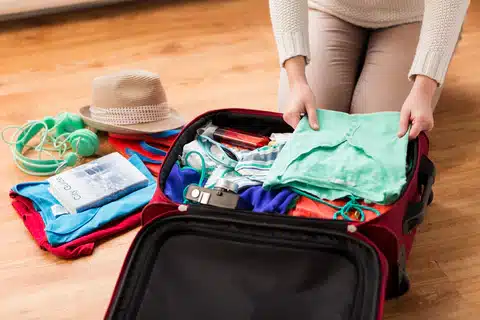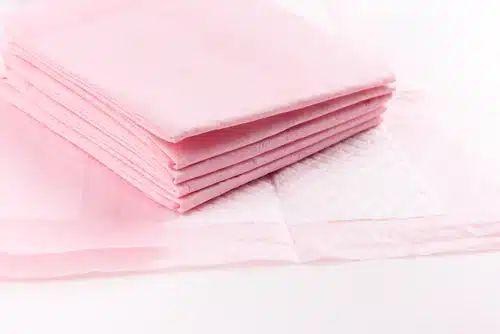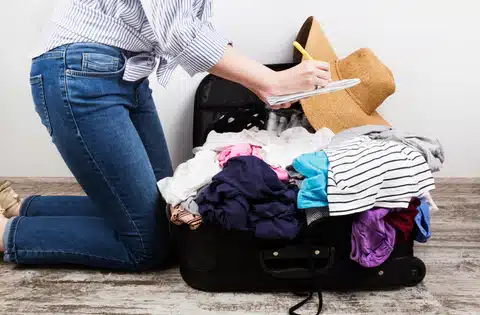Those who suffer from incontinence can have difficulty travelling or planning holidays. This is, unfortunately as common concern with many people across Australia and around the world. Being in an unfamiliar environment, especially one that may have limited bathrooms or restrictions on when they can be used. As a result, this can create anxiety in anyone who has trouble with bladder control. Holistic Incontinence have the following list of 4 tips to travel confidently with incontinence.

1: Preparation for Travelling with Incontinence
Preparation is everything. Being comfortable in the knowledge that you have some backups in place is important. As a result it is recommended you think ahead about your trip and what you might need. How are you travelling? By car or flying? Each option presents its own challenges for those with incontinence.
If you are flying, plan and book ahead to grab an aisle seat where possible. This will give you easier access to bathrooms. Further, plan your route with designated bathroom stops so you are never too long without a break.
Further, there are actual resources to help you plan for your trip and deal with incontinence. In fact, Australia has a national public toilet map, which is a great online or downloadable resource. This map lists the information of over 16,000 publicly available toilets around Australia.

2: Packing for Incontinence
It is important, when packing for your holiday, to consider what you use on a daily basis to manage your incontinence. Be sure to always pack plenty of supplies or stock up, bring extra clothing, and extra absorbent protection or medication before leaving home.
Further, you never know when your travel plans may change. Whether it is due to a cancelled flight or a weather delay, you don’t ever want to be stuck without your incontinence management products.
Finally, if you’re staying with family, consider if you need to bring bedding protection. Waterproof pads can be the perfect item to bring with you, as well as laundry detergent or plastic bags. Planning ahead keeps you one step ahead of the game. As a result, you will have peace of mind no matter what your travels throw at you.

3: Fluid Intake While Travelling
This is always a point where people differ. Some recommend you also limit your fluids, where safe and appropriate. Drink enough so you aren’t thirsty but don’t down a lot of fluid before you jump in a car or on a plane. If you use common sense while planning your trip, you will feel more comfortable and relaxed.
On the other hand, others warn against being tempted o reduce fluid intake. They argue that this does not reduce the risk of leakage. Instead, people recommend you choose your fluid wisely. It is important to avoid natural diuretics and bladder irritant, like caffeine. You should also ensure you drink plenty of water each day, not just on travelling days. By avoiding fluid intake you will reduce your bladder’s capacity and increase bladder sensitivity.

4: Create a Travel Checklist
Travel can be one of the greatest joys of life. It is also, often, a necessity. Help make this time less anxious by planning ahead and creating a travel checklist, or use our one below:
- Plan 6-8 weeks in advance of your trip
- Discuss your travel plans with your GP – they might have important aides, as well as vaccinations or booster shots you might require
- Talk to your GP about any medications you may also be taking with you. Check your prescriptions are up to date and whether you need a doctor’s letter to travel with your medications. Also remember to keep your medications in their original packing when travelling overseas
- Book your trip early and advise your agent on any needs you might have. Ensure they book you aisle seats where possible, near a toilet or near the front of the plane or vehicle so you can exit quickly on arrival
- Plan each stage of your trip as appropriate
- If you wear absorbent pads or underwear for bladder leakage, carry more supplies than you need for unexpected delays
- Check whether you may need an extra luggage allowance when booking, especially if you are carrying a large supply of continence products
- Inform airline staff of your needs so you can board first. This way you can calmly organise and arrange the products, clothing and carry-on luggage you need
- Wear dark coloured clothing to disguise any leakages and ensure they are easy to remove and comfortable to wear. A sarong, jacket or cardigan can also be tied around the waits to disguise an accident
- Take a small toilet bag as part of your carry-on luggage, as well as a change of clothing. Disposable wipes are handy
- Eat light meals so you don’t feel bloated, queasy or uncomfortable. Travelling can upset your digestion and body clock
- Avoid bladder irritants and natural diuretics like coffee, tea, chocolate drinks, soft drink, sports drinks, and alcohol. It is also best to avoid spicy or acidic foods
- Walk and stretch as much as possible to help with circulation and digestion. You can do a range of exercises while seated
Standing in line and travelling can be frustrating, but when you are suffering from incontinence it can be a nightmare. By planning ahead, you can travel without distress. Do not let incontinence keep you from the dream of travel.
Explore Holistic Incontinence’s range of products today so you, too, can get out and see the world!
